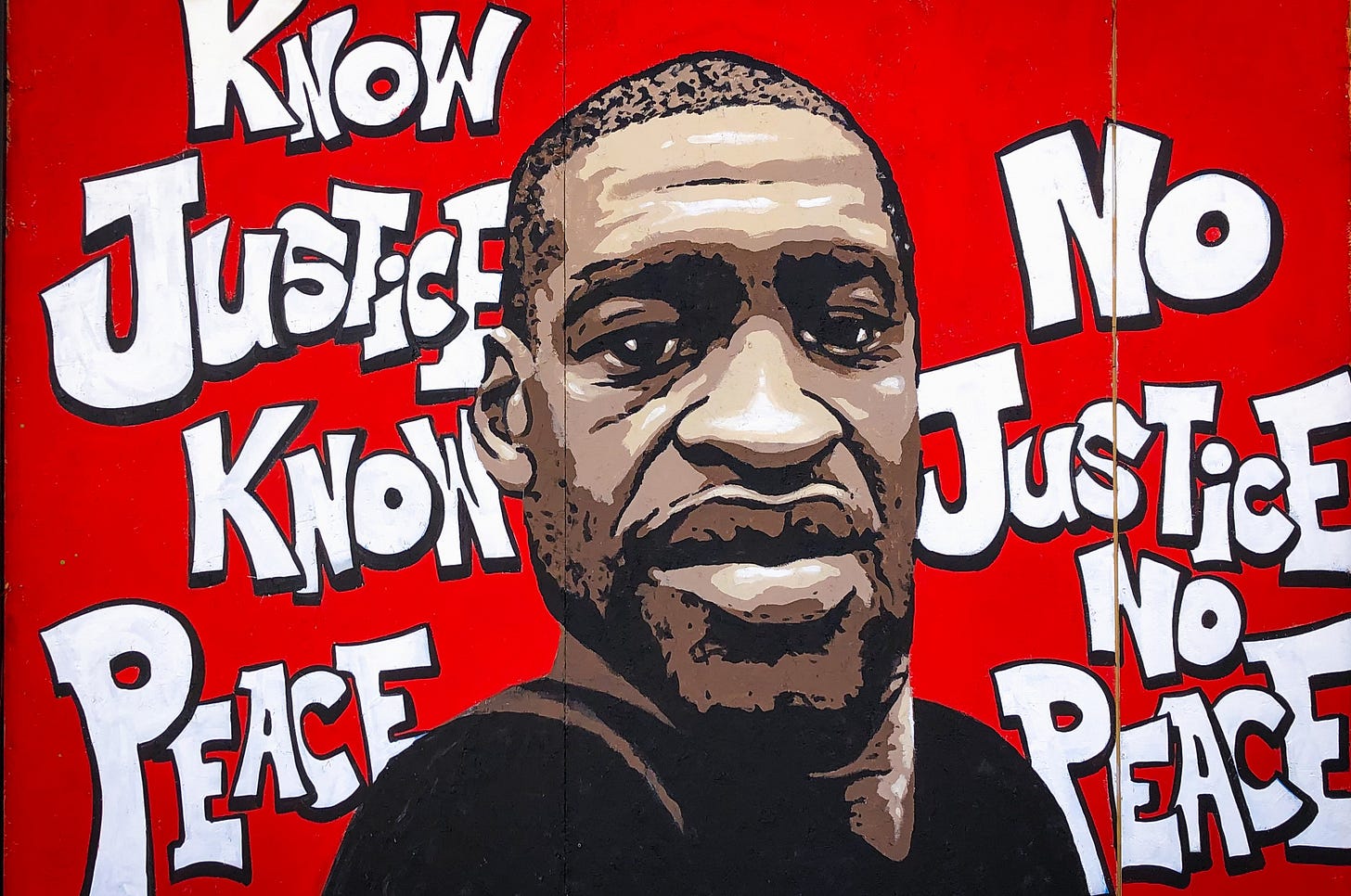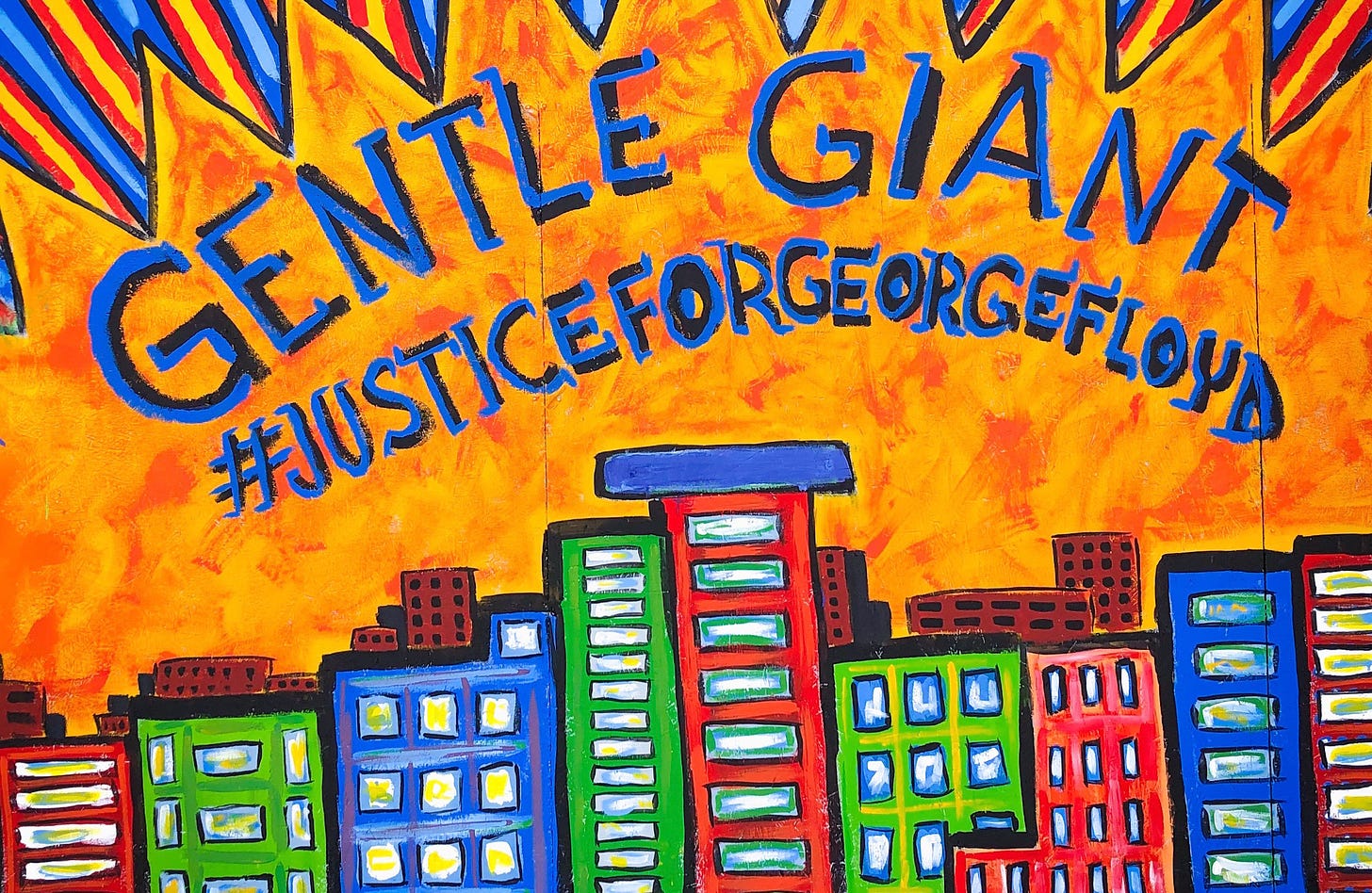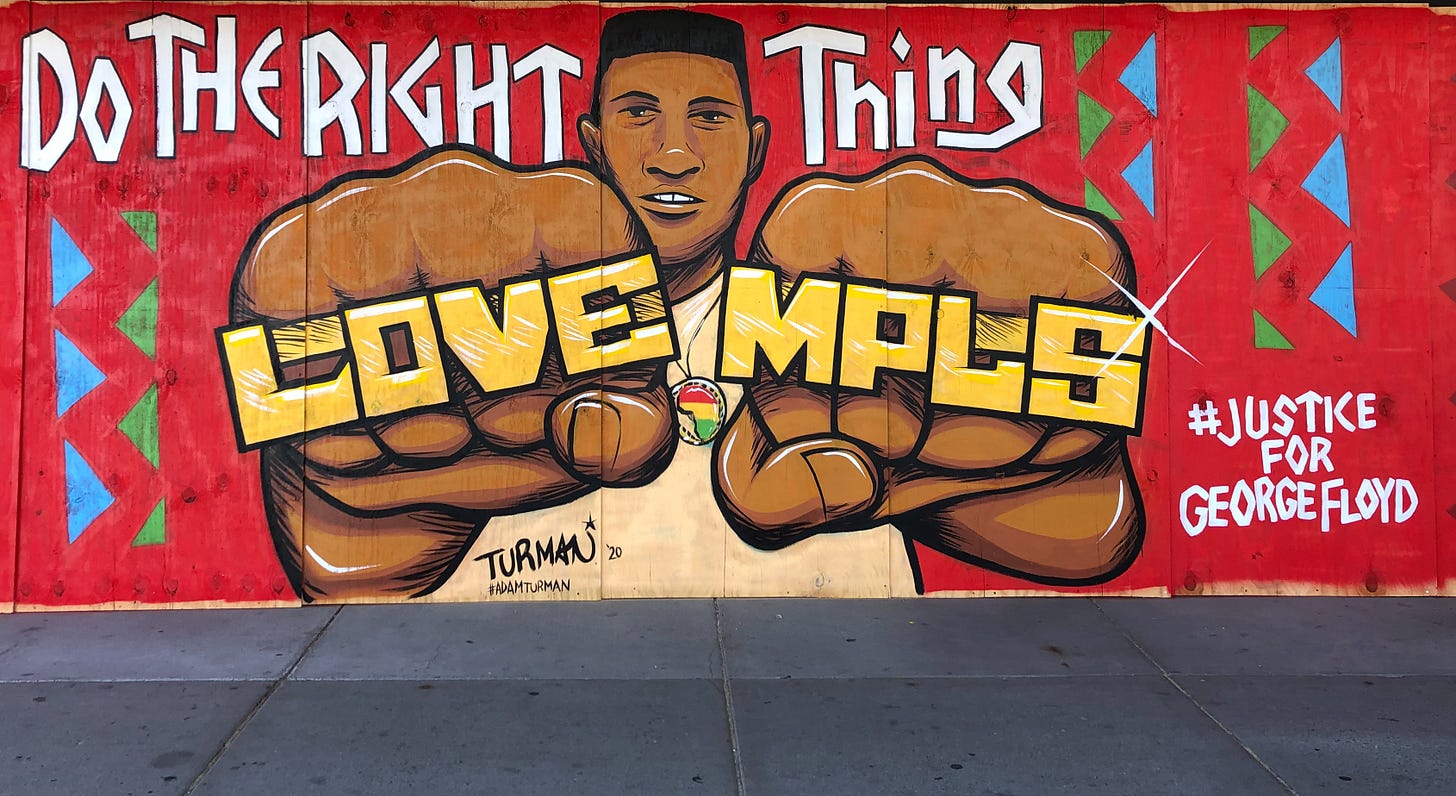Conviction of George Floyd’s killer is first step toward justice
On the afternoon of Tuesday, April 20, 2021, the city of Minneapolis came under a veil of quiet, anxious waiting. Much of the nation stood by, waiting anxiously with the people of Minnesota. In the space of that wait, I can say first-hand it felt as if history might hinge on this moment.
Living in Minneapolis, a city so rich with a sense of civic and community responsibility, the horrific killing of George Floyd for most of us brought shock, horror, and fear. If anyone could be treated this way, those sworn to protect and serve were not who they were supposed to be.

Since May 26, 2020—the day after George Floyd was killed—the Twin Cities have lived a tense but conscious and necessary pact. The demand for an end to predatory policing was nearly universally supported, and the search for a new model of public safety has been part of everyday life.
Incidence of crime has risen, as it has elsewhere during the pandemic, and yet never was there a call from the public for a “crackdown”. What people have asked for is simply that peace officers act in a way that keeps the peace, honors the dignity and rights of all, and makes room for justice. The trust has not yet been rebuilt, so we live this pact to inhabit the space of reform, even if it isn’t yet real.
It is important to know, if you don’t live here, that George Floyd really did become, for people of all backgrounds and perspectives, a reference for our common humanity. He deserved protection and was tortured to death. That fact turned everything about everyday life inside out.

Philonise Floyd, George Floyd’s brother, has been eloquent, eminently decent, and steadfast in his call for justice. Less than a month after his brother was killed, he asked the United Nations to pay attention and called for fraternity among nations in defense of basic rights:
You watched my brother die. That could have been me. I am my brother’s keeper. You in the United Nations are your brothers’ and sisters’ keepers in America, and you have the power to help us get justice for my brother George Floyd. I am asking you to help him. I am asking you to help me. I am asking you to help us. Black people in America.
Yesterday, Philonise said people call him from around the world, eager to see America provide the example, by doing justice in his brother’s name. “We won’t be able to breathe,” they tell him, “until you’re able to breathe.” People here now feel our common humanity in a deeper way—both because the whole world was watching, but also because we could feel the stakes of this in our guts, in our chests, the weight of this moment for our city and our world.
Nearly every day since George Floyd was killed, I have been asked by someone from some part of the world whether our system would be able to punish this evil crime. All of these conversations echoed one or more of these concerns:
Personal—Everyone was shocked by 9 minutes, 29 seconds of evil. People wanted to know this kind of crime will not go unpunished.
Hoping for a healthy US—There is real concern that if the United States cannot manage its own laws and deliver equal justice, its way of interacting with the world will be unstable and unreliable.
Beacon of Democracy—If the US legal system were to treat what Derek Chauvin did as excusable, it would send a clear signal to tyrants that violent persecution need never be held to account.
Our shared future—This trial was a test of whether a self-governing people can punish unaccountable abuse of power and defend human rights.
The decision by a jury of 12 citizens to convict Derek Chauvin on all 3 counts, including 2nd and 3rd degree murder and 2nd degree manslaughter, sent a wave of joy and relief across the city and the region. An acquittal of Derek Chauvin would have amounted to a nullification of the Bill of Rights.
The witnesses, the prosecutors, and the MPD officers who clearly, carefully, and consciously, made the case that Chauvin’s actions were homicide, did a great service to all of us. We avoided that nullification of universal rights; our system upheld the humanity of George Floyd, and of all of us.

The deep shock and trauma of this case, however, is that the very nullification we all hoped so desperately to avoid, has happened over and over and over again not for years or decades, but for centuries. Our society remains divided by the question of whether we experience that nullification of the Bill of Rights personally, and this selective nullification of human rights undermines all of us.
Vice President Harris recognized this in her remarks after the verdict:
Here’s the truth about racial injustice: It is not just a Black America problem or a people of color problem. It is a problem for every American. It is keeping us from fulfilling the promise of liberty and justice for all, and it is holding our nation back from realizing our full potential.
We are still crafting this Union of states and self-governing communities. We have a duty to one another to make it more and more like the highest vision of what it can be. We have a duty to honor and safeguard the essential human dignity and universal rights of everyone around us.
Let that work we must now do be George Floyd’s legacy, and ours.

